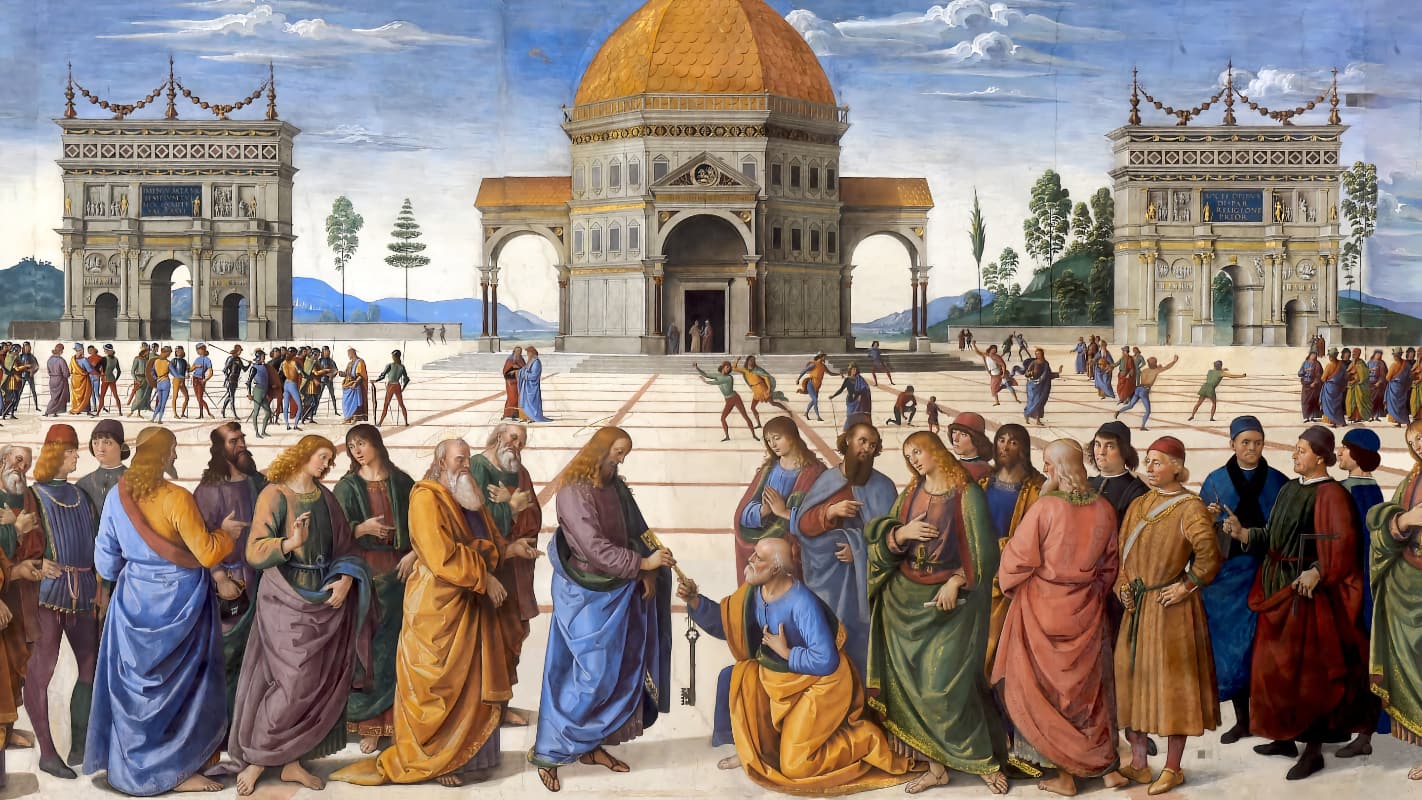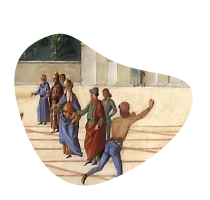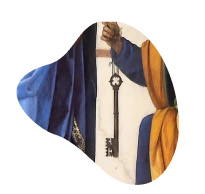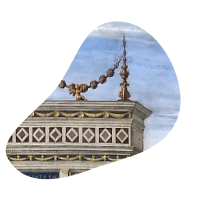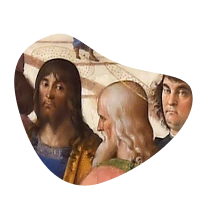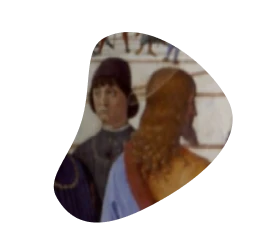In 1483, Josquin visited Condé-sur-l’Escaut to claim his aunt and uncle’s inheritance. How did they die? They might have been killed by the army of French king Louis XI who had besieged the town in 1478, and burned at least bits of it down. Louis XI was known as “the universal spider”; his reach was wide, and his web deadly. The French were at war with the Burgundians, and Josquin’s aunt and uncle could theoretically have been caught up in the carnage.
Who the hell would go and work for the man who had incinerated his own relatives? It seems quite likely that Josquin did just that. There is some uncertainty about his whereabouts between 1483 and his last documented employment before that, at the court of King René d’Anjou in Aix-en-Provence five years earlier. But when René died in 1480, a couple his singers were sent to sing at Louis’ Sainte Chapelle, and Josquin may very well have been one of them. His motet Misericordias Domini motet forms a kind of musical evidence for this.

It was the American musicologist Patrick Macey who, in an extraordinary piece of musical detective work 30 years ago, argued that the motet must have been penned by Josquin. Louis XI was obsessed with the idea that he could stave off death by paying for artworks and music, and he was especially obsessed with the text “Misericordias Domini.” The way Josquin assembled the text of this motet, which is his own freewheeling patchwork of quotes from the psalms, very strongly suggests a direct connection with the King.
We met Professor David Burns, from Leuven, Belgium, who explains why the King would have believed that he could save his soul by paying for motets: “You would pay to relieve yourself from a certain number of years in purgatory,” he explains, “and the more you paid, and the more extravagant it was, the better it would work.”
“When I started, people couldn’t even agree on how many Josquins there were” —musicologist Paul Merkley
A few years later, another American musicologist, Paul Merkley, through painstaking years of work on secondary sources managed to prove that Josquin was still a very young man when he arrived in Aix-en-Provence, and was in fact much younger than Merkley’s peers had assumed. “When I started, people couldn’t even agree on how many Josquins there were composing music—it was terribly confused,” says Merkley.
In Aix-en-Provence, Josquin served at one of the most sophisticated literary courts of the Europe of the time; the emphasis on poetry would undoubtedly influence Josquin’s approach to text for the rest of his life. When Rene died, Josquin was probably one of eight top singers sent on to the court of Louis XI in Paris; senior Josquin scholar Willem Elders explains to us that this was probably through the good offices of Johannes Ockeghem, who might have been Josquin’s teacher and maintained a close relationship with the Cambrai choir school, where Josquin was trained as a young boy.

There, Josquin certainly would have had a thorough education, explains Tallis Scholars director and project instigator Peter Phillips. It was a perfect place for the young Josquin to embark on his international career. The teaching must have been rigorous. The choir boys would have learnt Latin and the liturgy and music, and of course, mathematics. The Flemish choir schools were not unlike today’s British choir schools, live-in institutions where the boys studied and sang. It was a good education and it pretty much guaranteed you a place in the church choir world later on if you wanted. And they were part of a much bigger network of economic and political relationships between the low countries and Italy. By starting out at a Collegiate Church in Flanders, Josquin was linked to Italy and to Rome through the networks of the Catholic Church. France sat somewhat uncomfortably in between. Which is why Louis XI besieged Condé, and perhaps why Josquin’s aunt and uncle died, directly or indirectly.
Still, he must have needed a level head and a lot of determination to get to Aix-en-Provence, and then, when Roi René died, to be one of the eight singers sent on to the Chapelle Royale under Louis XI. Perhaps territorial wars were just a fact of life at the time, and Josquin never thought about his employer’s role in the destruction of his hometown. Or perhaps he did, and perhaps it was one of the things that motivated him to move on, as he did, to Milan, Rome, and Ferrara.
Master of the Notes is a Max Music Media production commissioned by the Pierre Boulez Saal and written by Shirley Apthorp and Willem Bruls.
Born in South Africa, Shirley Apthorp grew up in Australia and studied music at the University of Tasmania. Since 1996, she has lived in Berlin, writing about music for numerous international publications including the Financial Times (UK), Bloomberg (USA), and Opernwelt. Her work has been published in the United Kingdom, the U.S., Australia, Germany, Austria, Japan, Brazil, the Netherlands, Norway, and South Africa. In 2010, she founded the award-winning non-profit organization Umculo which supports social development through music theater in South Africa. Shirley Apthorp received the Classical:NEXT Innovation Award in 2019.
Willem Bruls holds degrees in literature and history of art and works as dramaturge, author, music critic, and librettist. He has published extensively on a wide range of subjects, including most notably a study of Wagner’s Ring cycle and orientalism in opera. He collaborated with directors such as Guy Cassiers and Pierre Audi and directed several music theater productions himself. He wrote a stage adaptation of Pasolini’s Teorema for the Ruhrtriennale Festival and has given workshops on contemporary music theater, libretto writing, and youth theater throughout Europe. He serves as an advisor for the performing arts to the Dutch Arts Council.
Credits
Original Music for this podcast was composed by Karim Said and recorded by Angela Boutros, Elias Aboud, Roshanak Rafani, and Joseph Protze of the Barenboim-Said Akademie.
Excerpts from Josquin des Prez, Vive le Roy, recorded by Jordi Savall & Hèsperion XXI © with kind permission of Alia Vox.
Excerpts from Josquin des Prez, Misericordias Domini, recorded by Manfred Cordes & Weser-Renaissance Bremen © with kind permission of Radio Bremen / cpo.
Excerpts from Josquin des Prez, Missa L’ami Baudichon, recorded by Peter Phillips & The Tallis Scholars © Gimell Records, London.
In case of violation of copyright, we kindly ask the rightsholders to contact us.
